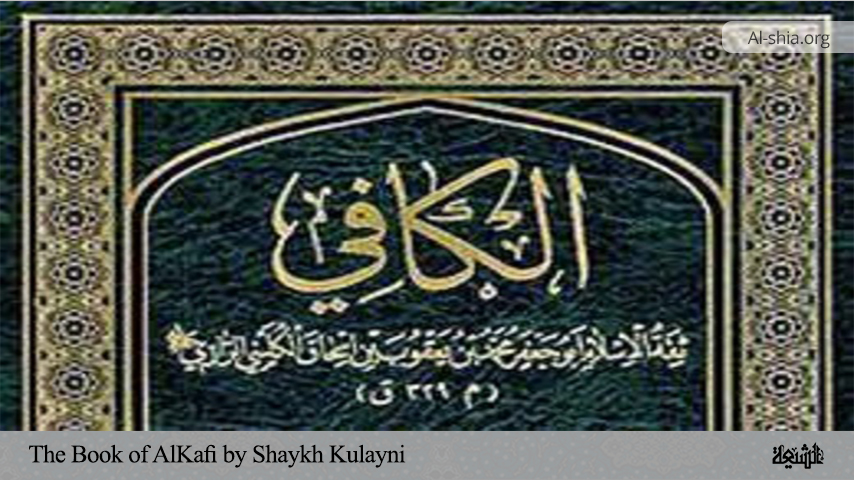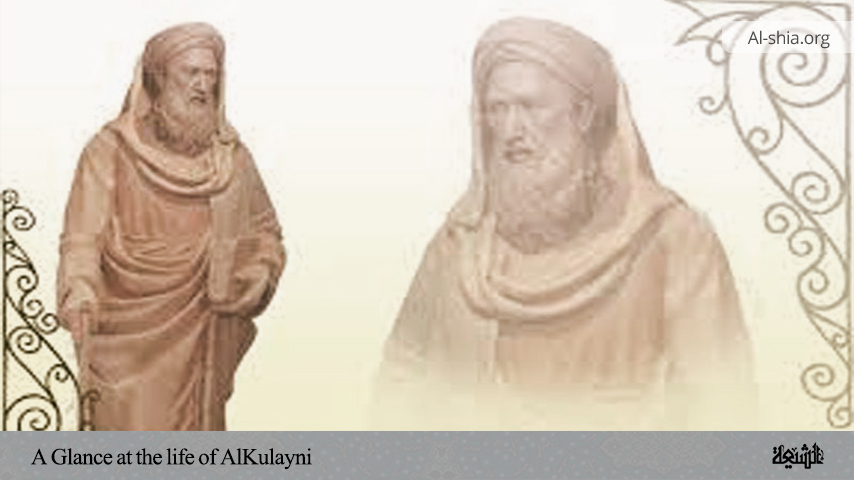In this part of the article “Cultural Relations between Christianity and Shia Islam”, we shall continue with the cultural relations between Christianity and Shia Islam.
Raymond Martin, one of the eminent Christian scholastics, who died in 1285 A.D., is the person who worked as a link between European Christianity and al-Ghazzali, because in his works, Interpretation of the Secrets of the Disciples of Jesus, and The Sword of Faith, he has evidently borrowed ideas from al-Ghazzali.
The influence of Ibn Sina on B. Spinoza’s various views, particularly his doctrine of emanation (ifadah), serves as irrefutable in the view of the thinkers of the East and the West. (1) From these examples, it may be inferred that the scholastics of other religions, particularly Christianity, have benefited from Muslim theologians in the middle ages without a doubt.
But the question arises as to whether non-Muslim scholastic thinkers have also influenced in a similar way of the Muslim scholastics.
5) The Mutazilah claimed (2) that the Ashairah in preaching uncreatedness of the Qur’an, were advocating the Christian doctrine about Logos, and as a result, have fallen prey to a kind of pluralistic heresy. The Mutazilah argued that the emphasis of the Ashairah on the uncreatedness of the Qur’an cause them in believing the doctrine of the eternity of the Qur’an and its coexistence in pre-eternity with Allah.
Thus they attributed eternity to the Qur’an along with the Eternity of Divine Essence. Shaykh al-Mufid says:
“A man from Basra was talking about one of Ashariah’s beliefs which was against monotheism. He was of the view that God’s Eternal Attributes are not the Divine Essence and not otherwise as well. That is why God is ascribed to be All-Knowing, the Living, the Omnipotent, the Hearing, the Seeing and the Speaker. That man was of the view that God possesses eternal face, eternal hearing, eternal seeing and eternal hands, such ideas are against the ideas of the monotheists what to talk of Islam.”(3)
This is interesting to note that the Ashairah made a similar allegation against the Mutazilah and dubbed them as the greatest of atheists (kafirin). They argued that whosoever maintains emphatically that the Qur’an is created comes closer to the views of the atheists since the atheists said that the Qur’an was a creation of the Prophet’s mind.
To support their argument, they cited a verse from the Qur’an, in which Allah Himself explains the unbelievers’ faith by saying:
“This (the Qur’an) is saying of man.” (4)
Al-Ashari writes: “Anybody who maintains that Qur’an is created, verily believes that Qur’an is man’s words. Such idea is like the ideas of unbelievers.” The criticism of the Mutazilah seems to be a criticism far from the truth.
They say that the Ashairah, supported by some orientalists, borrowed this doctrine of the eternity of the Qur’an and its uncreatedness from Jewish or Christian interpretation of the term “Logos”.
As the Ashairah has based their doctrine on the apparent meanings of some of the Quranic verses, they may not be blamed for adopting this view from alien sources and then reconciling it with the Quranic verses.
But we have to concede to some extent that the issues concerning the Divine Attributes in general, and the controversy regarding the Qur’an in particular, have emerged and developed in the course of controversies and discourses among theologists of Islam and the use of other religions, during which they came in contact with the works of each other.
The same is applicable in the context of medieval Christian scholasticism and the role of Descartes, and in the context of Medieval philosophy of Judaism and its impact on the modern philosophy of Europe through Spinoza.
6) The word of God (Kalimat Allah): It may be said that the image of the Prophet of Islam, Muhammad (PBUHH) bin Abdullah in the Muslims’ view and the Christian view of the personality of Christ (PBUH) may not be compared reasonably, since the concept of the prophethood of Isa bin Maryam (PBUH) in the Christian milieu and the concept of the Prophet (PBUHH) in Islam is also different.
Whenever we want to compare and contrast some sacred things in Islam and Christianity, we should try to compare the image of Christ in the Christian view with the words of the Qur’an and their nature, because both the Qur’an and Isa Masih are called Kalimat Allah (The Word of Allah).
It occurs in the Qur’an: “When the angels said:
O Mariam surely Allah gives you good news with a word from him (of one) whose name is the Messiah Isa son of Mariam, worthy of regard in this world and the hereafter and of those who are made near (to Allah).” (5)
In Christianity, Jesus Christ is the embodiment and incarnation of the “Word of God” (Kalimat Allah). His embodiment and anthropomorphisation are similar to what is meant by the revelation and descent and consequently written form of the Qur’an. This matter is discussed in the history of Ilm al-Kalam in the same way and sense. (6)
The Qur’an described itself as having the attributes according to which it is indicated that the existence of the Qur’an precedes its revelation in historical time to the Prophet (PBUHH).
For instance:
“Most surely it is an honoured Quran, in a book that is protected.” (7) “Most of it is a glorious Quran, in a guarded tablet.” (8)
“And surely it is in the original of the Book with us, truly elevated, full of wisdom.” (9)
A number of verses in the Qur’an throw light on this issue, that is, the Qur’an has been revealed (in time), and despite this, its existence precedes its revelation.
7) Accordingly “The Preserved Tablet” is considered contingent and created. The problem of revelation and the written form of the Qur’an, that is, the issue of the relationship of the revealed word to the Mother Book (Umm al-Kitab), does not give rise to any philosophical difficulty.
The philosophical difficulty arises when in the light of some Quranic verses. The Qur’an is referred to as existing in the realm of Divine Knowledge.
“And if you follow their low desires after what has come to you of knowledge, you shall not have against Allah any guardian or a protector.” (10)
“And if you follow their desires after the knowledge that has come to you, you shall have no guardian from Allah, nor any helper.” (11)
These verses led some theologians to confuse the Quran with the Divine Attributes of Knowledge, and they were compelled to believe that the Quran as created in time, revealed and written, is an accident of the Attribute of Eternal Divine Knowledge that preceded the written revelation.
This confusion is like the problem that arose in Christianity, particularly regarding the embodiment and incarnation of Christ.
It is interesting that this issue too was interpreted in a similar way since the Christian scholastics considered Christ as an embodiment of Divinity in the person of a human being and called the second member of the Trinity.
When the Shii theologians came to know that the use of the term “created” (makhluq) created difficulties, so in accordance with the way the Holy Family (Ahl al-Bayt) of the Prophet (PBUHH), they avoided making use of the word Muhaddith and instead of it used the word muhdath.
This term is used in the Qur’an for itself:
“Never comes there unto them a new reminder from their Lord but they listen to it while they play.” (12)
And,
“Never comes there into them a fresh reminder from the Beneficent One but they turn away from it.” (13)
Al-Shaykh al-Mufid, says:
“In my view, Qur’an is the God’s word and revelation. It is created in time (hadith), as is described by God, I do not wish to call it Mukhluq. There are certain hadiths from Imam Baqir (PBUH) and Imam Sadiq (PBUH) supporting such meaning.”
To be continued!
NOTES:
_____________________________
1. On the influence of Ibn Sina on Jewish Thinkers particularly Spinoza refer to the following books: E.I.J. Rosenthal, Avicenna’s Influence on Jewish Thought, “Avicenna: Scientist and Philosopher”, ed., G.M. Wiefens, London, 1952, Ch. IV. Encyclopedia Britannica, “Studies in Muslim Philosophy”, by Saeed Shaikh.
2. Refer to “Comparative Studies in Islamic Philosophy”, translated by Sayyid Mustafa Muhaqqiq Damad, Kharazmi Publication, 1369, Tehran, p.48.
3. Al-Abanah, p.56.
4. Qur’an 25:74
5. Qur’an 3:44
6. Wolfson, Philosophy of Kalam. The term `inlibration’ is used for this matter.
7. Qur’an 56:77-78
8. Qur’an 85:22
9. Qur’an 43:3
10. Qur’an 13:37
11. Qur’an 2:120
12. Qur’an 21:2
13. Qur’an 26:5






